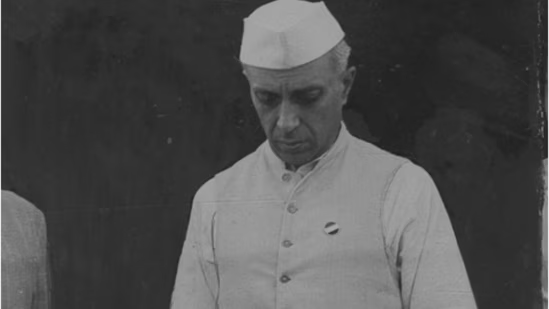Vande Mataram controversy – What Nehru muted in 1937, the BJP is amplifying in 2025.

In a fresh political storm on November 7, 2025, the Bharatiya Janata Party (BJP) accused India’s first Prime Minister, Jawaharlal Nehru, of deliberately omitting stanzas from Vande Mataram that praised Maa Durga. The party claims that the Congress, under Nehru’s leadership in 1937, bowed to communal pressure and removed these verses to appease minorities. The charge has reignited a long-standing debate about nationalism, secularism, and the cultural symbolism of India’s national song.
BJP’s Allegation: A ‘Historic Sin’ by Nehru
BJP spokesperson C.R. Kesavan alleged that at the 1937 Congress session, the Nehru-led party decided to officially adopt only the first two stanzas of Vande Mataram, omitting later verses that directly referred to Maa Durga. These stanzas, Kesavan said, embodied the spiritual strength of Bharat Mata — the motherland visualized as the goddess Durga. The BJP called the Congress’s move a “historic sin” and accused Nehru of pandering to communal sensitivities rather than embracing cultural unity.
Kesavan pointed to Nehru’s letters from 1937, in which he purportedly expressed concerns that the full version of Vande Mataram might ‘irritate Muslims’ due to its religious overtones. BJP leaders now argue that this decision was not about inclusivity but about erasing India’s cultural identity from its national expressions.
The Historical Context: Congress’s 1937 Decision
The historical background, however, paints a more complex picture. Vande Mataram was penned by Bankim Chandra Chattopadhyay in 1882 as part of his novel Anandamath. The song became a rallying cry for India’s freedom struggle but also sparked debates due to its depiction of the motherland as a Hindu goddess.
In 1937, during the Faizpur session, the Congress Working Committee (CWC) took up the issue following objections from the All India Muslim League. Some Muslim leaders argued that the song’s later verses, which included invocations to Durga and Lakshmi, carried overtly religious connotations. To maintain unity in the freedom movement, the CWC decided that only the first two stanzas of Vande Mataram would be sung at national gatherings.
This decision was later reaffirmed after independence, when the Constituent Assembly recognized Vande Mataram as the national song, again limiting it to the same two verses.
Politics of Faith and Identity: Vande Mataram controversy
The BJP’s latest statement comes as the government marks 150 years of Vande Mataram — a milestone that the ruling party is using to reassert its narrative of cultural nationalism. The party argues that the Congress’s 1937 decision symbolized the beginning of ‘appeasement politics’ that continued post-independence.
Congress leaders, however, dismiss these charges as revisionist. They maintain that the 1937 resolution reflected the inclusive ethos of the freedom movement, ensuring that Vande Mataram could unite all Indians, irrespective of religion.
The debate thus straddles two visions of India: one that sees Vande Mataram as a spiritual invocation of the goddess-mother, and another that views it as a secular ode to the land that nourishes all faiths.
What Historians Say: Vande Mataram controversy
Historians agree that the Congress’s 1937 decision did limit the song to two stanzas, but many caution against attributing personal motives to Nehru. Records show that the decision emerged from collective deliberation within the party, not from any single leader’s fiat. Scholars emphasize that the move reflected the Congress’s desire to avoid alienating any community during a fragile pre-independence period.
Academic consensus suggests that while the omitted stanzas do refer to Maa Durga, the omission was less about denying Hindu imagery and more about preventing religious polarization.
A Symbol Reignited: Vande Mataram controversy
As the BJP revives this decades-old controversy, Vande Mataram once again becomes more than just a song — it becomes a mirror reflecting India’s ongoing struggle to define its national identity. Is patriotism incomplete without its spiritual heritage, or is inclusivity the truer essence of devotion to the motherland?
In the end, the question is not only about what Nehru removed, but what India chooses to remember.
FOR MORE BLOGS – beyondthepunchlines.com

 Add to favorites
Add to favorites





